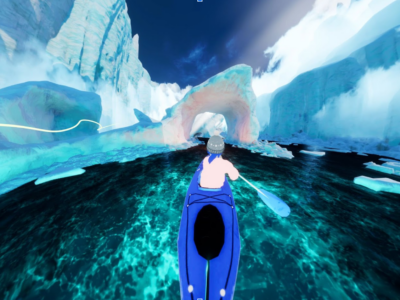
Despite widespread scientific evidence that climate change is underway, and that humans play an important role in it, about half of the American public doesn’t believe it. So what gives?
Maybe it’s just too scary to think about.
There’s a growing gap between scientists’ view of climate change and that of the general public, and it has less to do with scientific “illiteracy,” and more to do with the psychology of how people frame their understanding of the world, say the authors of a paper just published in the journal American Psychologist, part of a special issue on psychology and global climate change.
Authors Elke Weber, of the Center for Research on Environmental Decisions and the Columbia Psychology Department, and Paul Stern, of the National Research Council, looked at a long list of studies and concluded that the solution to the “climate gap” lies not in simply “educating” the public, but rather in using techniques of behavioral science to reframe the conversation.
Scientists are steeped in an analytical world – trained to question and test hypotheses, and to use systematic methods for collecting, measuring and analyzing data. They check each others’ work. When errors are made, they get called on it. And the evidence is cumulative, built by many people over time.
By contrast, people tend to respond to adversity and uncertainty with emotion – fear, dread, anxiety – as opposed to analysis; evolution has programmed us that way. And, we tend to see issues in light of our world view, for instance, whether we’re more egalitarian or individualistic. Those values and fears play into the political debate about climate change.
The difference between how scientists and non-scientists see the issue was starkly outlined last week: The National Research Council of the National Academy of Sciences issued a report warning that America needs to act now to begin to deal with climate change. The science is solid, it says, and the risks of inaction are great. In response, U.S. Rep. Joe Barton of Texas, representing the dominant Republican point of view, said he saw nothing in the report that would change his skeptical mind.
The Weber-Stern study notes that climate change is a complex phenomenon, with many drivers and many effects. It’s hard for many people to understand; people confuse the issue with others: environmental pollution, the ozone hole, the weather. Also, people tend to form their understanding of the world based on personal experience, and are highly influenced by recent and dramatic events. The effects of climate change are too slow and far into the future for Americans to relate to directly.
On top of all this, the study says, the scientific conversation has been politicized, turned into a contest of ideologies and values. Behind this, the study says ominously, is “an elite-driven social movement to shape public perceptions, interpretations and concerns, motivated by objectives that include a desire to maximize the welfare of corporations in the fossil fuel sector and an ideological opposition to federal regulation.”
The denial “movement” knows its psychology: It takes the uncertainty built into scientific inquiry and uses it to question the whole premise of climate change. If the problem might not be so bad, why worry about it? If this one fact is wrong, shouldn’t we question the whole premise? Maybe things will be better if it gets warmer.
The study blames the media, too, for presenting the issue in terms of drama and conflict – one side against another, with emphasis on the extremes. It also faults the media for its focus on “breaking news” versus long-term phenomena.
The authors’ answer: Fight psychology with psychology. For instance, reframe the question of scientific uncertainty into a conversation about risks, for instance — how continuing climate change increases the risk of certain things happening, and how to best manage those risks. In other words, if you want to lower your risk profile, you might avoid smoking in bed, driving on icy roads, and burning more fossil fuels than you really need.
One can also offer better mental models to address prevalent misconceptions. For instance, we tend to think things will be much like they have been in the past. But future climate will be unlike anything humans have experienced in the past 10,000 years. Or, explain that climate change processes can take a long time to unfold – and what we decide to do or not do today can have an impact on generations to come.




Poorly maintained rivers and dykes is hardly associated with climate change.
Despite widespread scientific evidence that climate change is underway, and that humans play an important role in it, about half of the American public doesn’t believe it.
It is zero surprise that a significant percentage of Americans do not believe that climate change is real, and that humanity is responsible for it.
The reason it is not at all surprising is the same reason why American politics has descended into the mosh pit of belligerent ignorance….low-brow, rightwing, talk radio ala limbaugh, and even worse, sean hannity.
PROPAGANDA WORKS.